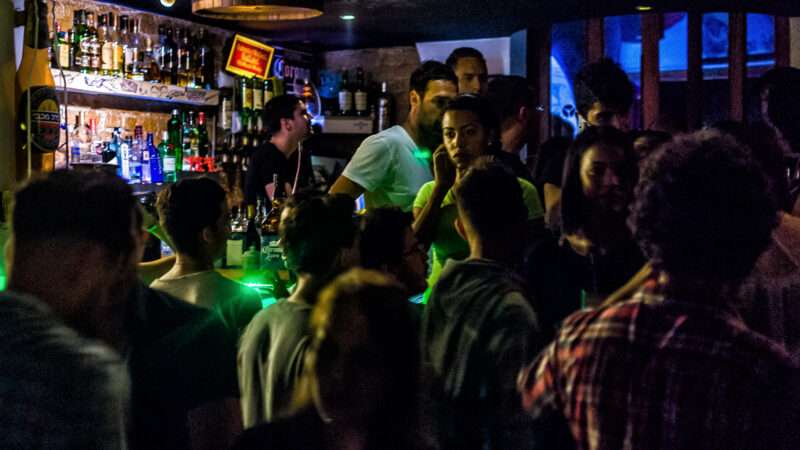
It's been a little over five years since Utah tore it down, but the infamous "Zion Curtain" has risen from the dead. Like a zombie in a bad horror film, America's most ridiculed alcohol law is apparently unkillable.
The Zion Curtain has made headlines over the past several decades as one of the most glaring examples of our country's antiquated and nonsensical system of alcohol regulation. In its original iteration, the law required a physical wall to be in place that separated the area behind the bar where drinks were mixed from the restaurant's customers.
The intent behind the rule was supposedly to shield children from watching drinks being made. Seeing a mixologist at work, the theory went, could lure kids into glamorizing and romanticizing alcohol, which in turn might lead them to the bottle. Given these moralistic rationales, many cited the powerful lobbying presence of The Church of Jesus Christ of Latter-day Saints in Utah, which contributed to the law's nickname.
Regardless of the reasons for the law, the infeasibility and financial costs imposed by the Curtain became impossible to ignore: Restaurants reported missing out on hundreds of thousands of dollars annually in lost sales due to the fact that few customers wanted to sip on an old fashioned while staring at a wall 6 inches from their face.
Finally, in 2017, a partial reform passed the state Legislature. The Zion Curtain was replaced by what some called a "Zion DMZ"—the walls could come down, but children were still prohibited from sitting within 10 feet of a bar. Despite the partial nature of the reform, restaurateurs were rightly relieved to catch up to the rest of the country when it came to the aesthetics of the bar.
But bad ideas never truly go away, especially when the government is involved. In an attempt to create a new banquet license, which would allow restaurants to host private parties on their premises, a newly proposed bill in the Utah Legislature would require every restaurant to build a wall that blocks off its banquet room from the rest of the establishment.
The similarities between the original Zion Curtain and this new proposal are impossible to ignore. For their part, the bill's proponents insist that it is not a wall but merely a room, despite the statutory language itself calling for a "permanent, opaque, floor-to-ceiling wall" to ensure the banquet room is "not visible to a patron" elsewhere in the restaurant.
In reality, the only difference between the old Zion Curtain and the new one is that the new version is likely to cost even more money for restaurants to build given that it must block off an entire room rather than just the bar area. Restaurateurs in the state are trying to sound the alarm, pointing out the unworkability of servers trying to deliver large quantities of food and beverages efficiently to a banquet room with a wall in the way.
As if resurrecting the Zion Curtain isn't bad enough, the same bill also seeks to block the sale of all mini-bottles of liquor in Utah once and for all. Last year, the Utah Department of Alcoholic Beverage Services Commission (DABS) solicited public comments about whether mini-bottles should be allowed in the state again after a decadeslong hiatus. By over a 2–1 margin, commenters favored reintroducing mini-bottles.
Although DABS was deemed to have the legal authority to greenlight mini-bottle sales, the agency backed away from the issue after facing pressure from state lawmakers. Now, along with a new Zion Curtain, those lawmakers are poised to enact a permanent ban on mini-bottles in the Beehive State.
Utahns have suffered for decades as the punchline of jokes about the Zion Curtain. They had finally appeared to loose the bonds of such mockery when the Curtain fell. Now, thanks to their government, the joke's on them again.
The post In Utah, Bad Booze Bills Never Die appeared first on Reason.com.







